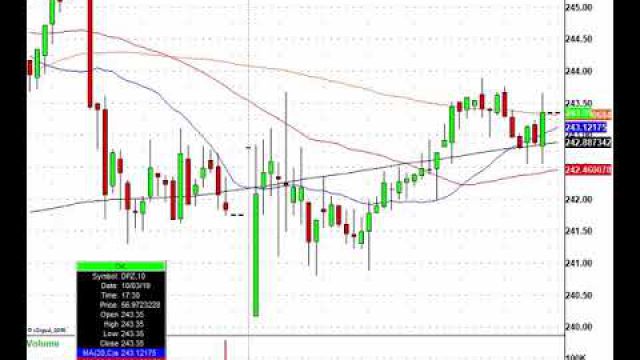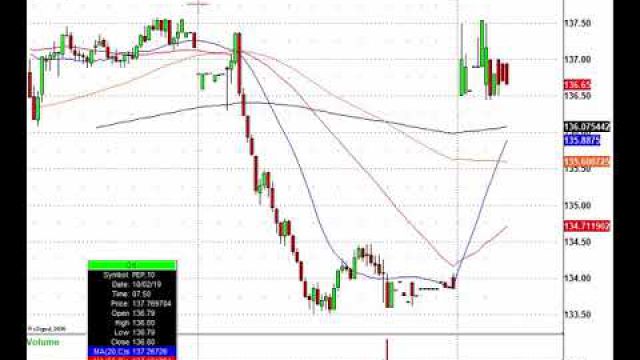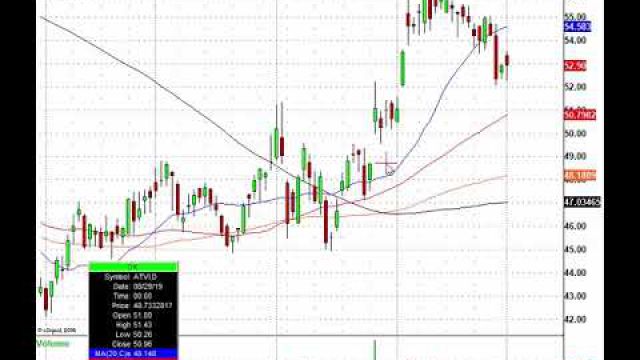Category: Uncategorized
- Published: 29 November -0001
News Release: Keryx Biopharmaceuticals, Inc. Initiates Phase II/III Clinical Program of KRX-101 (Sulodexide Gelcaps) for Treatment of Diabetic Nephropathy
Keryx Biopharmaceuticals, Inc. [Nasdaq: KERX; London AIM: KRX] announced today the initiation of a multi-center clinical trial, representing the Phase II portion of its Phase II/III clinical program for the treatment of diabetic nephropathy. This trial is a randomized, double-blind, placebo-controlled study, comparing two doses (200mg and 400mg daily) of KRX-101, the Company's lead drug candidate, versus placebo. The Phase II/III program is designed to assess the safety and efficacy of KRX-101 in patients with Type 2 Diabetes who continue to have persistent microalbuminuria despite treatment with maximum approved doses of standard-of-care therapy (ACE inhibitors or A2 Receptor Blockers (ARBs)). This trial will evaluate KRX-101's ability to impact urinary protein (albumin) excretion (also referred to as proteinuria) in the study population. Patients will be on treatment for six months, followed by two months of evaluation. All patients in the study population will continue to receive maximum approved doses of ACEs or ARBs during the treatment and follow-up periods.
The entire Phase II/III program is expected to enroll between approximately 750 and 1,000 patients, with the Phase II component enrolling up to approximately 135 patients. Enrollment in the Phase II component of the program is expected to take six to nine months, with enrollment for the Phase III component of the program expected to take an additional twelve to fifteen months, depending on the final size of the trial and recruitment rates. Data from the Phase II component of the program is expected to be available as early as the fourth quarter of 2004.
The KRX-101 Phase II/III clinical program is being conducted by The Collaborative Study Group (CSG), the world's largest standing renal clinical trial group, whose execution of the ACE Inhibition trial in Type 1 Diabetic Nephropathy and the recently completed trial of Irbesartan in Type 2 Diabetic Nephropathy (I.D.N.T.) both led to FDA approval and the recommendation of these agents as standards of care by the American Diabetes Association. The program's lead investigator is Dr. Edmund J. Lewis, Director of Nephrology at the Rush-Presbyterian-St. Luke's Medical Center in Chicago and co-chairman of the CSG. Also participating in the Phase II component are approximately 25 of the most highly regarded U.S. clinical centers for the disease. As the program moves into its second component, it is anticipated that a significant number of additional clinical centers will participate in the trial.
'The commencement of this Phase II/III clinical program marks an extremely important milestone in the development of KRX-101, and a significant accomplishment for Keryx,'commented Michael S. Weiss, Chairman and CEO of Keryx. 'Diabetic nephropathy is the leading cause of End-Stage Renal Disease (ESRD), a disease that has an approximately 80% 5-year mortality rate and an annual cost to the healthcare system in excess of $15 billion today that is expected to grow to nearly $40 billion per year by 2010. This Phase II/III program represents a major step towards bringing this novel treatment closer to the three to four million Americans afflicted by the disease and it represents the first time KRX-101 will be administered to patients in the U.S. The goal of this therapy is to potentially prevent patients afflicted with diabetic nephropathy from ever developing ESRD and suffering the hardship of its significant associated morbidity and mortality.'
Dr. Edmund J. Lewis, Co-Chairman of CSG and lead investigator, commented, 'The CSG is very excited to begin this very important clinical work. We are quite hopeful that this program will corroborate the efficacy KRX-101 has demonstrated in its previous European clinical trials in which patients treated with KRX-101 experienced highly statistically significant reductions in urinary protein levels versus placebo. If successful, sulodexide will offer an entirely new approach in the treatment of this devastating disease.'
Dr. Lawrence Hunsicker, Co-chairman of the CSG, added, 'Despite existing therapies, the number of patients progressing to end-stage renal disease continues to rise in epidemic proportions. With such a compelling need for a novel treatment approach to diabetic nephropathy, this program represents one of the most important developments in treating diabetic nephropathy today. The CSG is excited to be able to begin enrolling patients, and looks forward to the rapid conclusion of this important clinical program.'
ABOUT KRX-101
KRX-101 (sulodexide), a first-in-class oral heparinoid compound, is being developed for the treatment of diabetic nephropathy, a progressive and life-threatening kidney disease which afflicts approximately 3 to 4 million people with diabetes in the United States alone.
KRX-101 belongs to a proposed new class of nephroprotective (kidney protecting) drugs, called glycosaminoglycans. A variety of members of this chemical family have been shown to decrease pathological albumin excretion in diabetic nephropathy in man. However, these heparin agents all require therapy by injection and are all potent anticoagulants, which are blood thinners capable of inducing bleeding. Sulodexide, on the other hand, is given orally and, in this form, has demonstrated little, if any, anticoagulant effects to date.
More than 20 studies have been published in leading medical journals assessing the safety and efficacy of KRX-101 in diabetic nephropathy and other vascular conditions. Most recently, KRX-101 demonstrated significant efficacy in treating diabetic nephropathy in a randomized, placebo-controlled, 223-patient Phase II clinical trial (the DiNAS Study) conducted in Europe. In this study, patients with Type 1 and Type 2 diabetes with diabetic nephropathy were treated daily for four months with 50, 100- and 200-milligram gel caps of KRX-101 and showed substantial dose-dependent reduction in proteinuria, with the highest dose achieving a 74% reduction versus placebo following four months of treatment. In addition, the data in the DiNAS Study showed that the therapeutic effect of KRX-101 was additive to ACE-inhibitor treatment, suggesting that KRX-101 operates under a different mechanism of action than do ACE inhibitors and Angiotensin Receptor Blockers ('ARBs'), which represent the existing first line of treatment for the disease. These findings were published in the June 2002 issue of the Journal of American Society of Nephrology.
KRX-101 (sulodexide) has a well-established safety profile based upon nearly twenty years of marketing experience by the Company's licensor and use by thousands of patients (representing over 50 million patient days of use) in Italy, Spain, Eastern Europe, Asia, and South America as a cardiovascular drug.
In 2001, KRX-101 was granted Fast-Track designation for the treatment of diabetic nephropathy and, in 2002, the Company announced that the FDA had agreed, in principle, to permit the Company to avail itself of the accelerated approval process under subpart H.
ABOUT DIABETIC NEPHROPATHY
According to the American Diabetes Association, there are an estimated 17 million people with diabetes in the United States, of which 90%-95% are people with Type II diabetes. Approximately 20% of all people with diabetes develop diabetic kidney disease, a condition known as diabetic nephropathy. Therefore, it is estimated that there are approximately 3 to 4 million people suffering from the disease in the U.S. alone. Diabetes is now the most common cause of End Stage Renal Disease, or ESRD, in the U.S. and in many other developed nations, and represents 44% of all new cases of ESRD in the U.S. Despite advances in clinical care, including improvements in glycemic (blood sugar) control and blood pressure control, the number of diabetes-related cases of ESRD continues to rise. In particular, the incidence of Type II diabetes-related ESRD is rapidly increasing. Less than 20% of diabetics on dialysis in the US survive for five years, making the mortality of ESRD in this group higher than in most forms of cancer. Principally due to age and concomitant vascular disease factors, renal transplantation is an option for less than 20% of patients with ESRD from diabetes (as compared to patients with ESRD caused by other non-diabetes conditions, for whom 40-50% may benefit from renal transplantation). Thus, despite recent advances, diabetic nephropathy remains a potentially catastrophic illness for which partial, but insufficient treatment is available today.
ABOUT KERYX BIOPHARMACEUTICALS, INC.
Keryx Biopharmaceuticals, Inc. (Nasdaq: KERX; London AIM: KRX) is a biopharmaceutical company focused on the acquisition, development and commercialization of novel pharmaceutical products for the treatment of life-threatening diseases, including diabetes and cancer. Keryx is developing KRX-101 (sulodexide), a novel first-in-class oral heparinoid compound, for the treatment of diabetic nephropathy, for which Keryx is currently conducting its U.S.-based Phase II/III clinical program. Keryx also has an active in-licensing program designed to identify and acquire clinical-stage drug candidates. Additionally, Keryx is seeking partners for its KinAce(TM) drug discovery technology and related products. Keryx Biopharmaceuticals is headquartered in New York City.
Some of the statements included in this press release, particularly those anticipating future financial performance, timelines for the completion of the KRX-101 Phase II/III clinical trial program and the release of data from this program, size of the program, market size estimates for KRX-101, growth and operating strategies and similar matters, are forward-looking statements that involve a number of risks and uncertainties. For those statements, we claim the protection of the safe harbor for forward-looking statements contained in the Private Securities Litigation Reform Act of 1995. Important factors may cause our actual results to differ materially, including: our ability to successfully begin and complete cost-effective clinical trials of KRX-101; and other risk factors identified from time to time in our SEC reports, including, but not limited to, the report on Form 10-K for the year ended December 31, 2002, and our quarterly report on Form 10-Q for the quarter ended June 30, 2003. Any forward-looking statements set forth in this news release speak only as of the date of this news release. We do not intend to update any of these forward-looking statements to reflect events or circumstances that occur after the date hereof. This press release and prior releases are available at www.keryx.com. The information in Keryx's website is not incorporated by reference into this press release and is included as an inactive textual reference only.
KERYX CONTACT: Ron Bentsur VP Finance and Investor Relations Keryx Biopharmaceuticals, Inc. Tel: +1-212-531-5965 E-mail: This email address is being protected from spambots. You need JavaScript enabled to view it.
SOURCE Keryx Biopharmaceuticals, Inc.
Ron Bentsur, VP Finance and Investor Relations of Keryx Biopharmaceuticals, Inc., +1-212-531-5965, or This email address is being protected from spambots. You need JavaScript enabled to view it.
http://www.keryx.com
WEBSITE This email address is being protected from spambots. You need JavaScript enabled to view it.


















